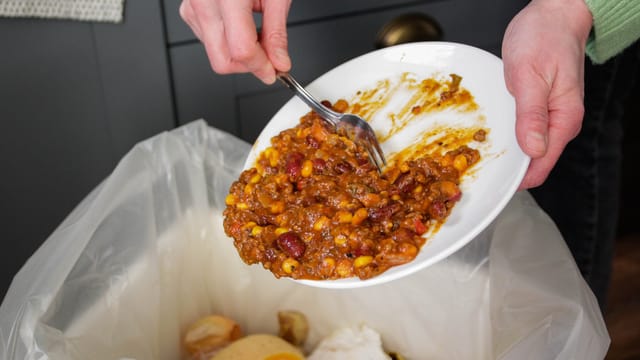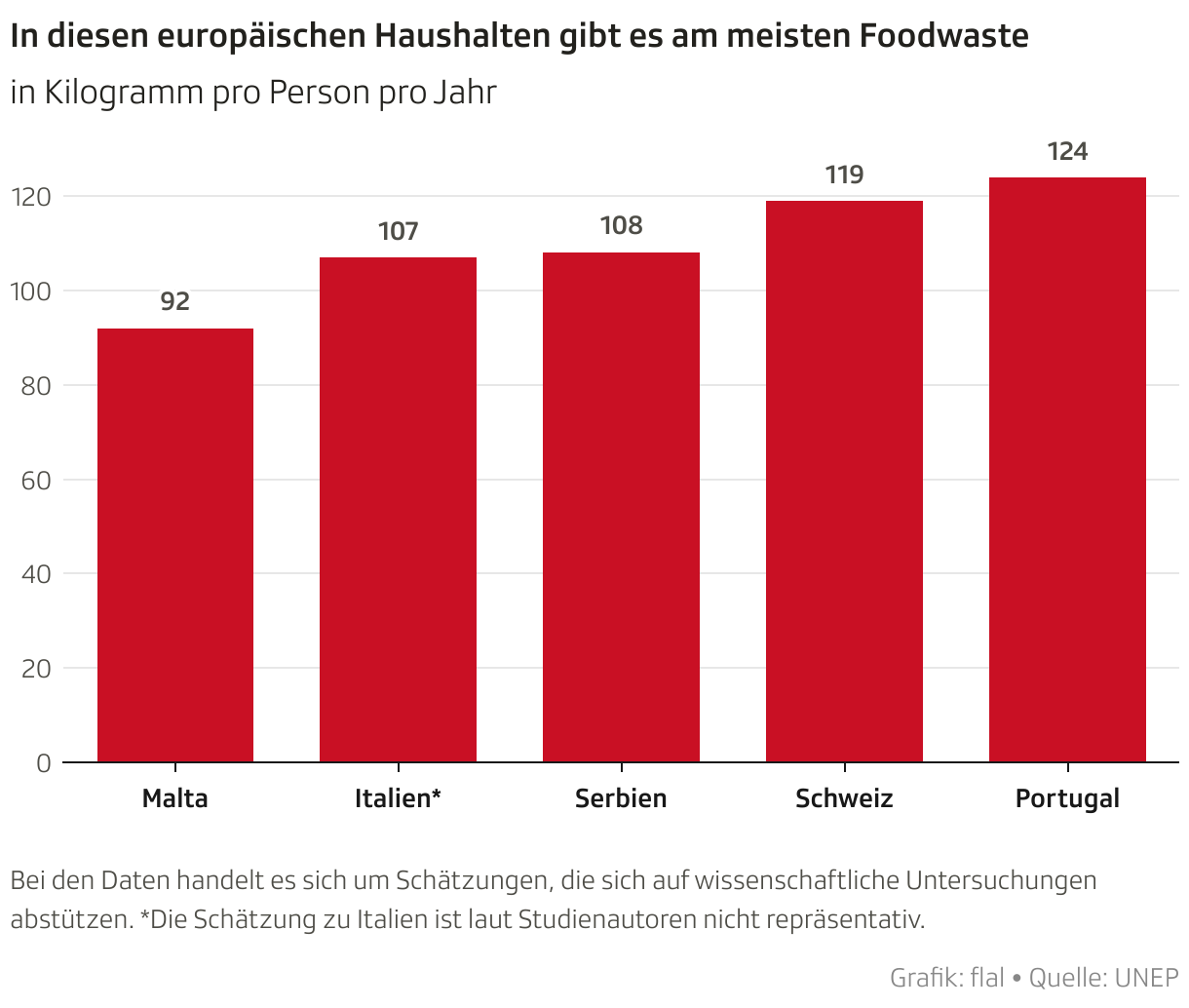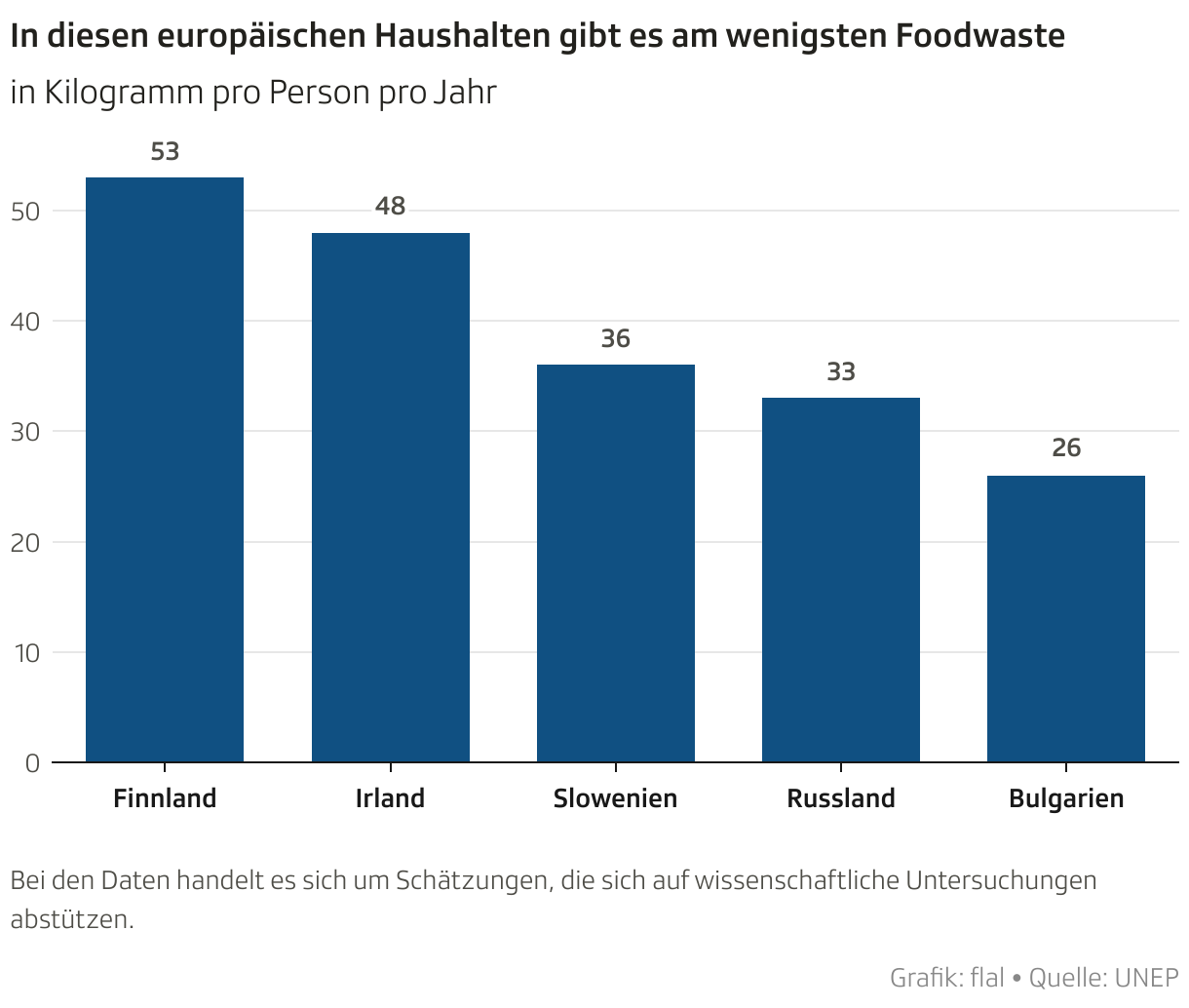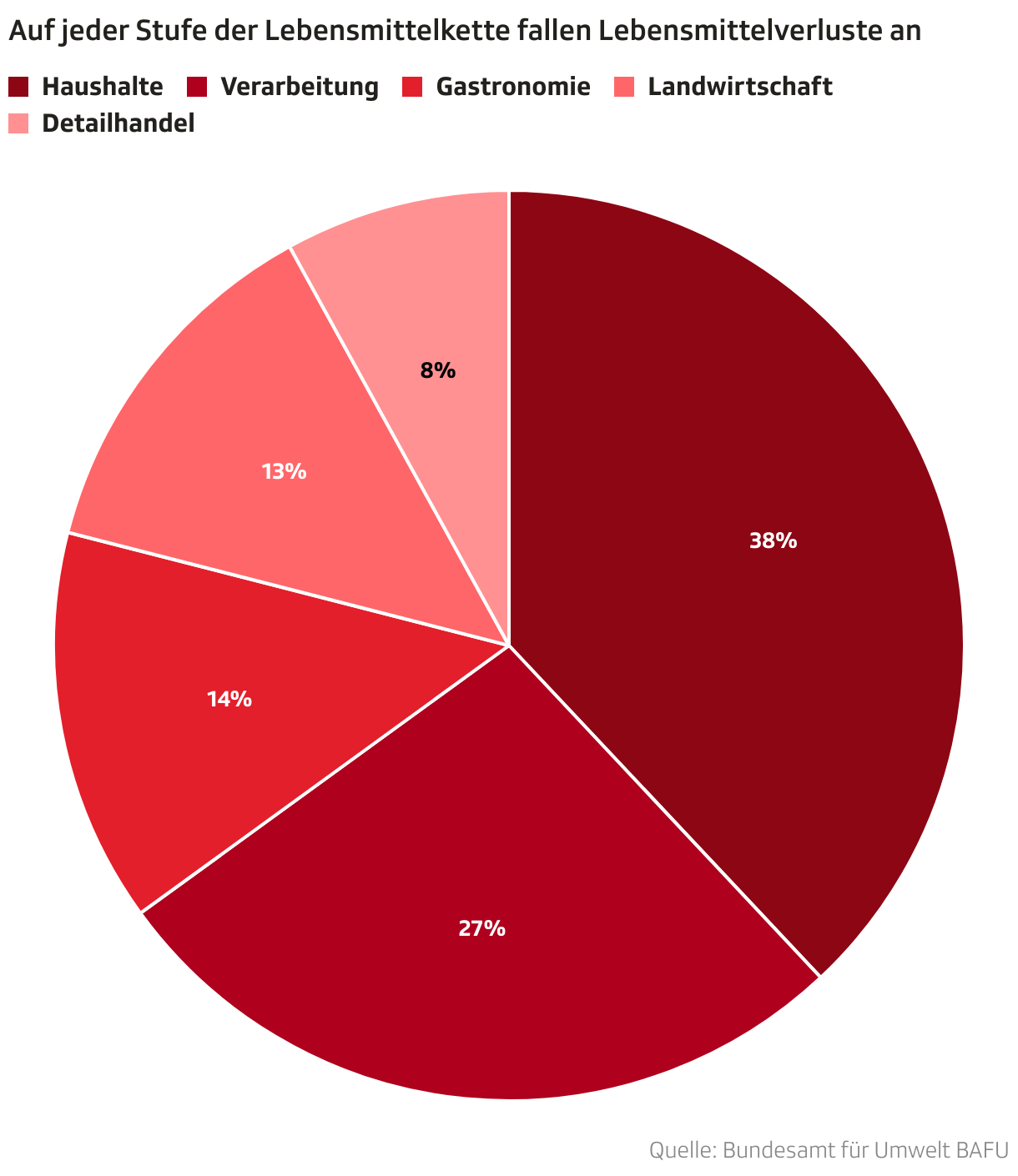Contents
According to UN estimates, we throw away 170 kilograms of food per person in this country every year. An overview.
Easter weekend is just around the corner. In many places, eggs are dyed, nests are searched for and, above all, plenty of food is eaten. However, the food not only ends up on the plate, but also in the trash.
What is it about? Over a billion tonnes of food is thrown away worldwide every day, according to a new UN report. At the same time, almost 800 million people worldwide are hungry. “Food waste is a global tragedy,” said Inger Andersen, executive director of the United Nations Environment Program (UNEP). In 2022, around 19 percent of the food produced worldwide was wasted. According to UN estimates, around 60 percent of this occurs in private households. That’s almost 80 kilograms per person per year.
You can find the entire UN report here
How does Switzerland compare to other European countries? With 119 kilograms per person ending up in waste in private households, Switzerland significantly exceeds the European average. However, food components that are not intended for consumption are also included here.
If the retail trade and catering industry are added to this, the UNEP study authors expect Switzerland to generate 170 kilograms of waste per person per year – the highest in Europe. For comparison: According to the study, in Germany it is just over 100 kilograms and in France it is just under 100 kilograms.
Where do food losses occur in this country? According to the Federal Office for the Environment, around a third of all edible food is lost or wasted between the field and the plate. When we look at it individually, however, we are the worst at home.
According to Bafu, 25 percent of the environmental impact of our food system can be attributed to avoidable food losses. This corresponds to around half the environmental impact of private motorized transport in Switzerland.
How can I waste less food?
1. | Plan every purchase and only buy as much as you need. |
2. | Store food properly and keep food fresh. |
3. | Know the shelf life and check expired items based on appearance and smell. |
4. | Use food creatively and use recipes to use up leftovers. |
5. | Pack up any leftovers correctly and enjoy them later. |
What is the federal government and the industry doing to combat food waste? With the “Action Plan against Food Waste”, the Federal Council wants to halve avoidable food losses by 2030 compared to 2017. This is in line with the 2030 Agenda for Sustainable Development. In order to achieve the goal, numerous large food manufacturers such as Emmi, Fenaco or Migros and Coop have signed a cross-industry agreement with the federal government.



